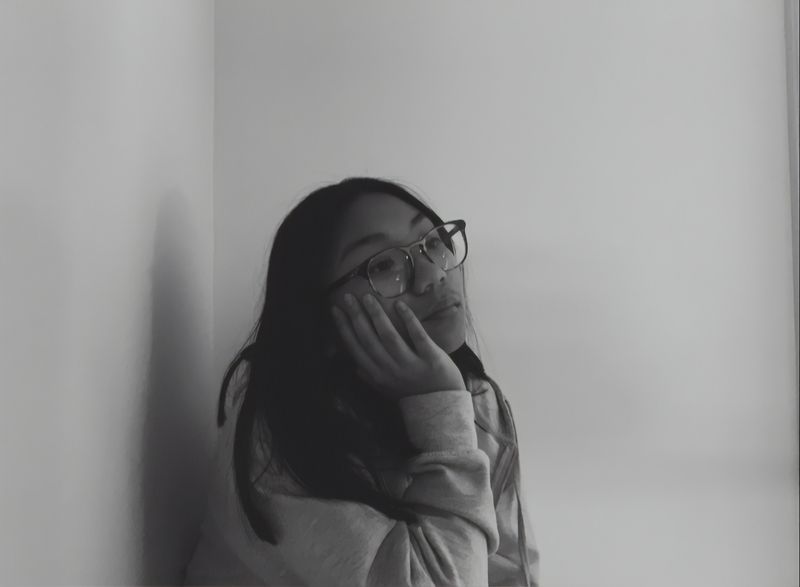We Are America
The Fear of Vulnerability
By Olivia

North Quincy High School, Massachusetts
According to the U.S. 2018 census, America is 76.5% white. That makes the other 23.5% a minority. Growing up, I went to a school that had a very small number of Asian-American kids. Additionally, I transferred from a private school to a public school during first grade, so I had a tough time adjusting. To add to this complex situation, I was put into an ELL class, so the other kids thought I didn’t speak English. Each and every single child appeared to make friends easily, but I, on the other hand, couldn’t socialize without feeling awkward or getting called names. Talking to people who didn’t look like me intimated me. I dreaded every single minute I was in that institution. There were only two places where I felt any comfort: home and the gymnasium during recess.
In order to make friends, I felt obligated to act like the other kids. I believed these changes were why I was able to befriend Sam. He was my first friend in two years. Then, Sam moved. Not long after, I depended on a lunch lady as my only friend. My first encounter with the lunch ladies happened the day Sam moved. The next day, when I noticed he was gone, I cried all lunch. When the recess bell rang, I refused to get up. Mrs. Lee, the only Asian lunch lady, came to comfort me, so the janitors could clean the tables. She reminded me of my mom, so as I was sobbing, I was somehow able to confide in her. After that day, I would talk to her like a friend, and she didn’t seem to mind me. She became my support system.
Talking to Mrs. Lee was like butter. I could talk to her and ask questions, and she would reply and talk about her day and family. My talks with her soon became the only thing I looked forward to. There was a mother-daughter bond between us. I would cry to her, laugh with her, and confide in her. The days when she was absent felt like hell.
One day, in fourth grade, during our daily conversation, Mrs. Lee asked me why I always hung out with her. She said, “Don’t you have friends?”
“They don’t like me.”
“How do you know?”
I was silent. I didn’t know how to reply, so I ran away. I needed a break to reassess. For four days, I didn’t see her. I endlessly replayed that moment in my head. I made an important realization: I never tried. I was so afraid of them judging me that I was too scared to even attempt a friendship. I wasted all that time just to avoid being hurt. The following week was my first attempt at making friends in two years.
Not long after, I met a group of boys who treated me nicely. I told Mrs. Lee about how happy I was to meet them. They didn’t judge me or treat me differently: they acted like I was just one of the boys. Mrs. Lee was no longer my safe space; they were. We would play all sorts of games and I felt so happy. They inspired me to participate in school, and soon enough, I became involved. I faced my fear. I overcame myself and did not allow my fear to stop me.
A year later, I went back to Mrs. Lee and I told her, “You saved me!” She looked confused, but replied, “No problem, kiddo!” I hope she knows that because of her, I now have friends and I am adventurous and independent. I was so blessed to have her to help me explore the idea that there are people who don’t judge you on appearance. Because of her, I have dedicated my life to not only facing my fears, but exploring the unknown.
© Olivia. All rights reserved. If you are interested in quoting this story, contact the national team and we can put you in touch with the author’s teacher.